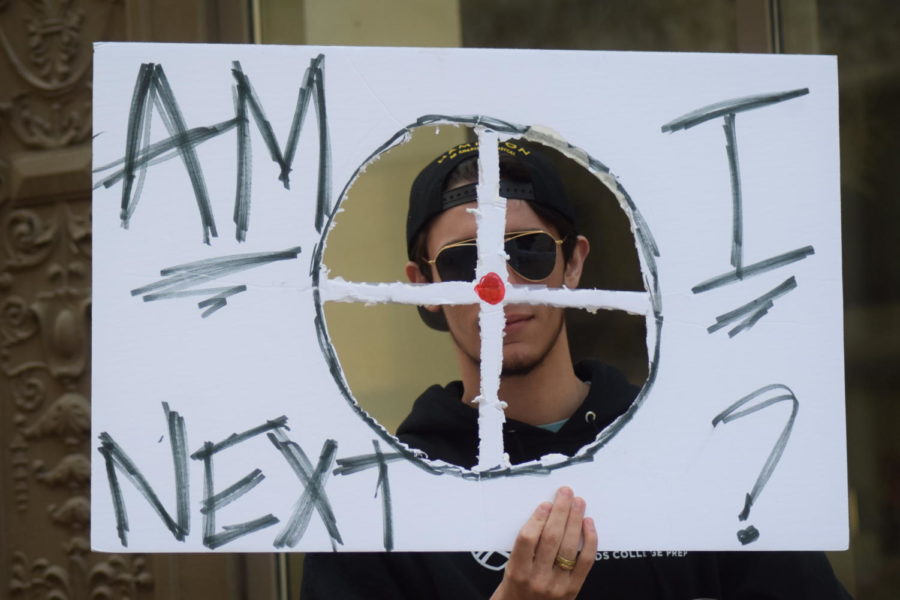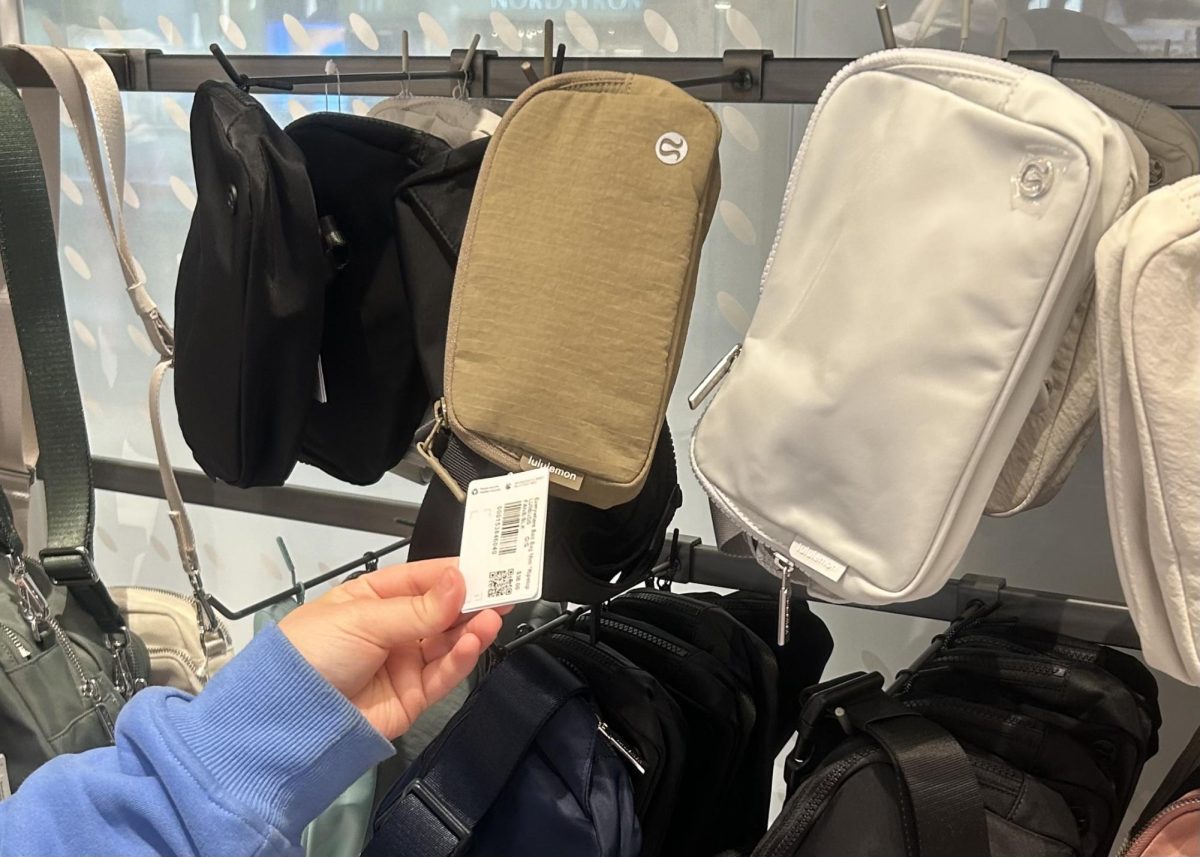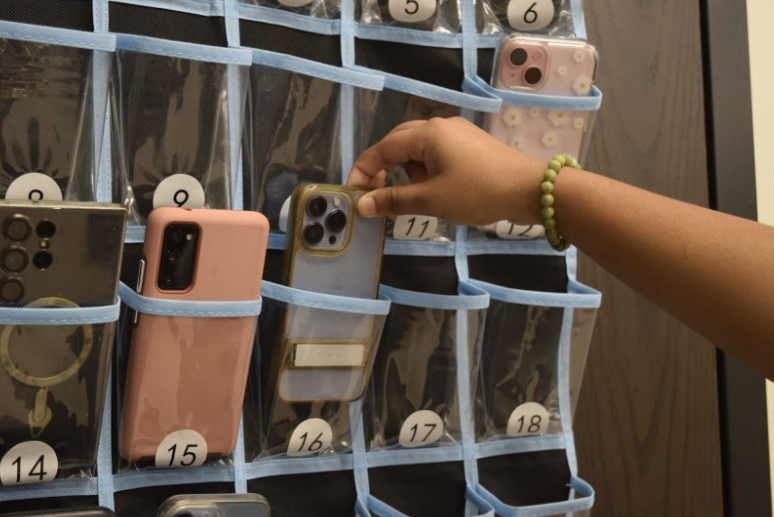Exactly one year ago today, my parents, like millions across America, hugged their kids a little tighter when they returned home from school. Some 1,200 miles away, families in Parkland, Fla. would never get the opportunity to enjoy one final embrace. That fateful afternoon, 17 promising lives were cut short at the hands of the ninth-deadliest mass shooting in U.S. history.
From Marjory Stoneman Douglas High School to a Jason Aldean concert in Las Vegas to a nightclub in Orlando, Fla., the rapidly increasing frequency of gun violence in the United States has had a numbing effect on our national dialogue.
Yet despite bearing witness to tragedy after tragedy, we as a country have offered far more thoughts and prayers than tangible action in response to this growing epidemic.
For the 39 states that do not require universal background checks for all firearm transactions, loopholes in the law allow for unlicensed private sellers to disproportionately enable disaster, as their unregulated sales account for 96 percent of eventual gun-related crimes.
We don’t even need to look beyond our own backyard to observe the effects of excessively lax gun policy. Missouri repealed its background check mandate for unlicensed sellers in 2007, prompting a 23 percent spike in firearm homicides rate in the three years to follow.
Opponents of gun control have cited a myriad of excuses ranging from video games and school entrance doors to girls rejecting unwanted advances by their male counterparts as alternative causes of mass shootings. To this retort that “guns don’t kill, people do,” we see the soar in bloodshed is largely exclusive to guns. Keeping these firearms out of the hands of potentially dangerous individuals through a bolstered background check system is the lynchpin to ensuring safety.
The statewide non-firearm homicide rate remained flat, showing a strong correlation between more open firearm access and subsequent acts of violence. Similarly, the firearm suicide rate in Missouri rose by 16.1 percent–again with no noticeable change in suicide rate by other means. Overall, a Johns Hopkins School of Public Health compilation of 130 primary studies across 10 countries concluded that the “implementation of laws targeting multiple firearms restrictions is associated with reductions in firearm deaths.”
Simply put, the empirical evidence suggests that looser regulations are not the solution to curbing gun violence. Regarding the argument that gun ownership enhances one’s safety, homicide and suicide rates skyrocket by 41 percent and 244 percent, respectively, when a gun is kept in the home. And if you still aren’t convinced by this data? At the very least we ought to begin by undoing the National Rifle Association’s successful lobbying efforts to suppress the dissemination of and funding for gun violence research. Under the guise of supposedly “protecting freedom,” the infiltration of the gun control debate by corporate interests has restrained the amount of available information and drastically hampered the ability to devise insightful, effective policy.
While it would by no means be an ultimate panacea, H.R.8, colloquially referred to as the Bipartisan Background Checks Act of 2019, seeks to require background checks for any sale of firearms. Of the bill’s nine original sponsors in the U.S. House of Representatives, five were Republicans; four Democrats.
Various common sense gun control action has been introduced within the confines of Missouri’s state legislature as well. Missouri State Senator Jill Schupp (Senate District 24 in St. Louis County) and State Representative Peter Meredith (House District 80 in St. Louis City) have filed numerous pieces of legislation in the wake of the fatal shooting at a local Catholic Supply store. Among them are Schupp’s proposals to require firearm transactions to be processed through a licensed dealer and institute a 72 hour waiting period–which could contribute to limiting the number of impulsive suicides–on handgun transfers. If nothing else, Meredith’s HJR 21 would give Missourians the autonomy to decide for themselves at the upcoming general election in 2020 by bringing the questions of background checks and concealed carry permit requirements to the ballot.
These laws aren’t a repeal of the Second Amendment. Rather, they are bipartisan solutions that polling suggests roughly 90 percent of Americans support. During the time you have spent reading this article on your lunch break or in between classes, someone in America very likely lost their life to the barrel of a gun. We will never be able to reverse the unthinkable grief that became reality a year ago, but our obligation to actively prevent the next instance of gun violence is one that for many Americans will make the difference between life and death.



![Senior Dhiya Prasanna examines a bottle of Tylenol. Prasanna has observed data in science labs and in real life. “[I] advise the public not to just look or search for information that supports your argument, but search for information that doesn't support it,” Prasanna said.](https://pwestpathfinder.com/wp-content/uploads/2025/10/DSC_0073-2-1200x800.jpg)
![Junior Fiona Dye lifts weights in Strength and Conditioning. Now that the Trump administration has instituted policies such as AI deregulation, tariffs and university funding freezes, women may have to work twice as hard to get half as far. "[Trump] wants America to be more divided; he wants to inspire hatred in people,” feminist club member and junior Clara Lazarini said.](https://pwestpathfinder.com/wp-content/uploads/2025/05/Flag.png)
![As the Trump administration cracks down on immigration, it scapegoats many immigrants for the United States’ plights, precipitating a possible genocide. Sophomore Annabella Whiteley moved from the United Kingdom when she was eight. “It’s pretty scary because I’m on a visa. When my visa expires next year, I’m not sure what’s going to happen, especially with [immigration] policies up in the air, so it is a concern for my family,” Whiteley said.](https://pwestpathfinder.com/wp-content/uploads/2025/05/DSC_0077-7copy.jpg)
![Shifting global trade, President Donald Trump’s tariffs are raising concerns about economic stability for the U.S. and other countries alike. “[The tariffs are] going to pose a distinct challenge to the U.S. economy and a challenge to the global economy on the whole because it's going to greatly upset who trades with who and where resources and products are going to come from,” social studies teacher Melvin Trotier said.](https://pwestpathfinder.com/wp-content/uploads/2025/05/MDB_3456-1200x800.jpg)



![Some of the most deadly instances of gun violence have occurred in schools, communities and other ‘safe spaces’ for students. These uncontrolled settings give way to the need for gun regulation, including background and mental health checks. “Gun control comes about with more laws, but there are a lot of guns out there that people could obtain illegally. What is a solution that would get the illegal guns off the street? We have yet to find [one],” social studies teacher Nancy Sachtlaben said.](https://pwestpathfinder.com/wp-content/uploads/2025/01/DSC_5122-1200x800.jpg)


![Focused on providing exceptional service, sophomore Darsh Mahapatra carefully cleans the door of a customer’s car. Mahapatra has always believed his customers deserve nothing less than the best. “[If] they’re trusting us with their car and our service, then I am convinced that they deserve our 100 percent effort and beyond,” Mahapatra said.](https://pwestpathfinder.com/wp-content/uploads/2025/10/DSC_0018-1200x800.jpg)
![Sophomore Aleix Pi de Cabanyes Navarro (left) finishes up a soccer game while junior Ava Muench (right) warms up for cross country practice. The two came to Parkway West High School as exchange students for the 2025-2026 school year. “The goal for the [exchange] program is to provide opportunities for both Parkway students and our international exchange students to learn about other cultures, build connections and become confident, capable, curious and caring — Parkway’s Four C’s — in the process,” Exchange Program Lead Lauren Farrelly said.](https://pwestpathfinder.com/wp-content/uploads/2025/10/Feature-Photo-1200x800.png)
![Leaning on the podium, superintendent Melissa Schneider speaks to Parkway journalism students during a press conference. Schneider joined Parkway in July after working in the Thompson School District in Colorado. “My plan [to bond with students] is to get things on my calendar as much as possible. For example, being in [classes] is very special to me. I am trying to be opportunistic [meeting] kids [and] being in [the school] buildings. I have all the sports schedules and the fine arts schedules on my calendar, so that when I'm available, I can get to them,” Schneider said.](https://pwestpathfinder.com/wp-content/uploads/2025/09/IMG_5425-1200x943.jpeg)
![Gazing across the stage, sophomore Alexis Monteleone performs in the school theater. The Monteleone family’s band “Monte and the Machine” has been releasing music since 2012, but Alexis started her own solo career in 2024 with the release of her first single, Crying Skies. “My whole family is very musical, [and I especially] love writing [songs with them],” Monteleone said.](https://pwestpathfinder.com/wp-content/uploads/2025/09/DSC7463-1200x798.jpg)

![Leaping through the air, senior Tyler Watts celebrates his first goal of the season, which put the Longhorns up 1-0 against the Lafayette Lancers. Watts decided to play soccer for West for his last year of high school and secured a spot on the varsity roster. “[Playing soccer for West] is something I had always dreamed of, but hadn’t really had a good opportunity to do until now. It’s [really] fun being out [on the field], and I’m glad I decided to join the team. It’s just all about having fun with the boys and enjoying what time we have left together,” Watts said.](https://pwestpathfinder.com/wp-content/uploads/2025/09/DSC_1951-1200x855.jpg)


![Pitching the ball on Apr. 14, senior Henry Wild and his team play against Belleville East. Wild was named scholar athlete of the year by St. Louis Post-Dispatch after maintaining a high cumulative GPA and staying involved with athletics for all of high school. “It’s an amazing honor. I feel very blessed to have the opportunity to represent my school [and] what [it] stands for,” Wild said.](https://pwestpathfinder.com/wp-content/uploads/2025/05/unnamed-6-1200x714.jpg)
![Red, white and blue, the American flag holds the values of our democracy. The fight that we once endured has returned, as student journalists and senior correspondents across the country are losing their voices due to government control. “[Are] the White House and [the] government limiting free speech [and] freedom of the press? Yes [they are],” chief communications officer of the Parkway School District and former journalist Elisa Tomich said.](https://pwestpathfinder.com/wp-content/uploads/2025/03/Untitled-design-14.jpg)

